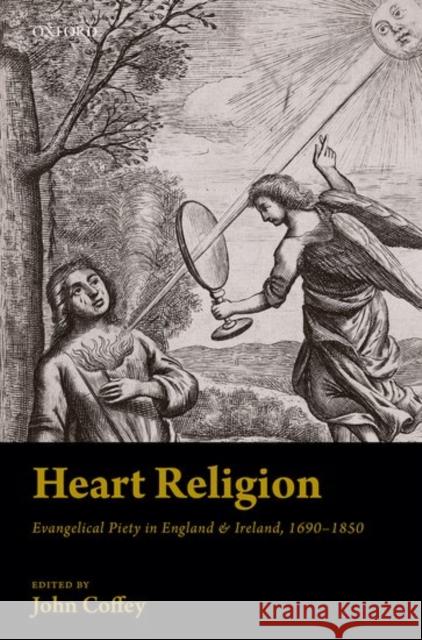Heart Religion: Evangelical Piety in England & Ireland, 1690-1850 » książka
Heart Religion: Evangelical Piety in England & Ireland, 1690-1850
ISBN-13: 9780198724155 / Angielski / Twarda / 2016 / 320 str.
The Evangelical Revival of the mid-eighteenth century was a major turning point in Protestant history. In England, Wesleyan Methodists became a separate denomination around 1795, and Welsh Calvinistic Methodists became independent of the Church of England in 1811. By this point, evangelicalism had emerged as a major religious force across the British Isles, making inroads among Anglicans as well as Irish and Scottish Presbyterians. Evangelical Dissent proliferated through thousands of Methodist, Baptist, and Congregational churches; even Quakers were strongly influenced by evangelical religion. The evangelicals were often at odds with each other over matters of doctrine (like the "five points" of Calvinism); ecclesiology (including the status of the established church); politics (as they reacted in various ways to the American and French Revolutions); and worship (with the boisterous, extemporary style of Primitive Methodists contrasting sharply with the sober piety of many Anglican advocates of "vital religion"). What they shared was a cross-centered, Bible-based piety that stressed conversion and stimulated evangelism. But how was this generic evangelical ethos adopted and reconfigured by different denominations and in very different social contexts? Can we categorize different styles of "heart religion"? To what extent was evangelical piety dependent on the phenomenon of "revival"? And what practical difference did it make to the experience of dying, to the parish community, or to denominational politics?
This collection addresses these questions in innovative ways. It examines neglected manuscript and print sources, including handbooks of piety, translations and abridgements, conversion narratives, journals, letters, hymns, sermons, and obituaries. It offers a variety of approaches, reflecting a range of disciplinary expertise--historical, literary, and theological. Together, the contributions point towards a new account of the roots and branches of evangelical piety, and offer fresh ways of analyzing the history of Protestant spirituality.










